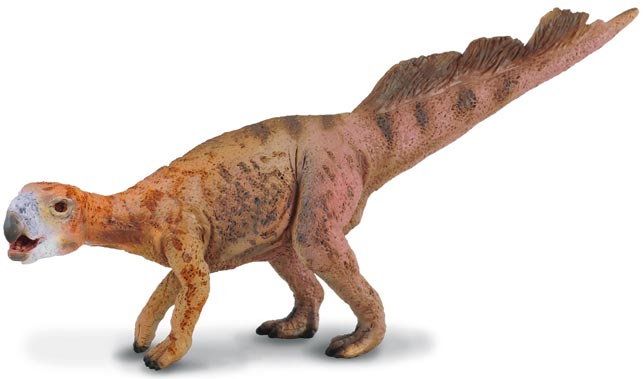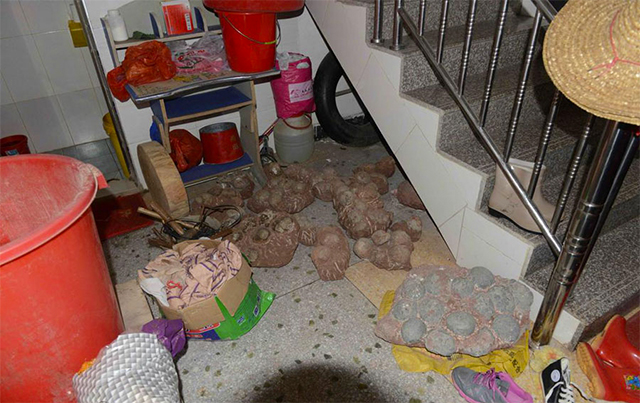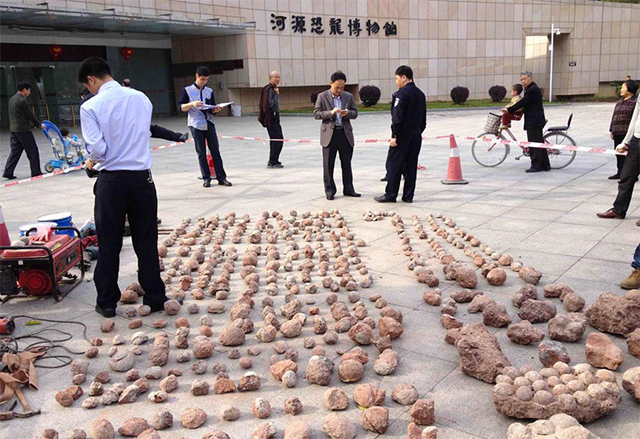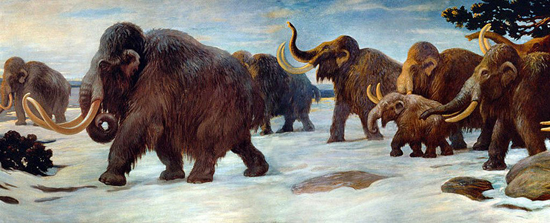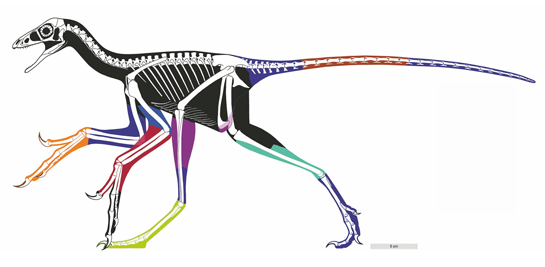Dinosaur Skeleton and 213 Fossilised Eggs Recovered in Raid
Chinese police seized a total of 213 dinosaur egg fossils and an almost complete fossil of a small herbivorous dinosaur in a raid on a house in Guangdong Province (southern China). Despite there being strict laws about the illegal removal and sale of ancient artefacts such as fossils in China, there is a significant trade in fossils from China, most of which are smuggled out of the country destined for the more lucrative markets for illegally sourced fossils in Europe and the United States.
A Huge Haul of Illegally Obtained Fossil Material
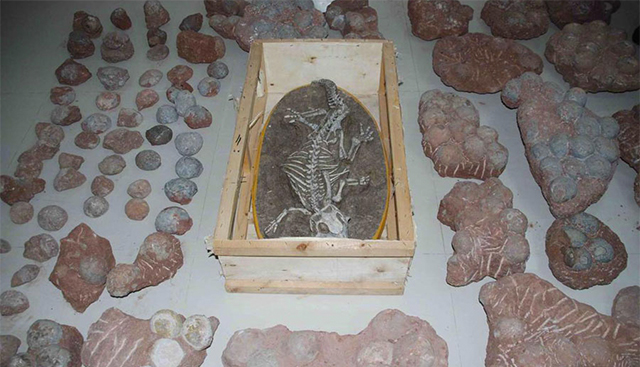
The Psittacosaurus was crated, either this is how it was sent from northern China or it was being prepared for illegal export.
Picture credit: Xinhua News Agency
Authorities Raid House
The seizure took place on July 29th and was reported by the State run news agency – Xinhua. The eggs come from a local construction site close to Heyuan City (Guangdong Province), they were looted by locals after workers uncovered a series of dinosaur egg fossils, discoveries of which have been reported over the last three months or so. The eggs date from the Late Cretaceous, and this part of southern China is famous for its extensive dinosaur nesting site deposits.
Unfortunately, thefts of fossils are common as it is difficult for the authorities to keep track of each new fossil discovery. Back in 2011, Everything Dinosaur team members reported on the return to China of a number of dinosaur eggs that had been illegally smuggled into the United States.
To read more about this: The Return of Stolen Dinosaur Eggs to China.
Fossil Thefts and Dinosaur Eggs
Chinese officials believe that local residents raided the construction site where a number of dinosaur egg fossils had recently been uncovered. The fossils were being stored at a local address, most likely prior to being sold onto a middle man who would then forward the illegally obtained items onto other dealers for sale to private collectors abroad. The skeleton found at the address has been identified as being that of a Psittacosaurus, fossils of which have been found throughout northern China. Although Everything Dinosaur has no specific information on this specimen, it has been suggested that this fossil comes from the Liaoning Province (north-eastern China), perhaps from the Yixian Formation.
The Psittacosaurus fossil specimen is much older than the eggs, the strata that makes up the Yixian Formation is cited as being Lower Cretaceous, the Psittacosaurus may be more than 120 million years old.
An Illustration of the Dinosaur Psittacosaurus
Picture credit: Everything Dinosaur
Dinosaur Eggs – Chinese Legislation
Although China has some of the strictest legislation in the world in a bid to stop the exploitation of its rich fossil heritage, policing dig sites, many of which are found as a result of building projects and not by scientific fieldwork, is extremely difficult. Illegal excavations for dinosaur fossils are believed to be common in Guangdong Province. Some locals steal the fossils and keep them at home, whilst others are part of a network which smuggles the material out of the country, destined for the black market in fossils overseas.
The Fossils were Scattered All Over the House
Picture credit: Xinhua News Agency
A spokesperson from Everything Dinosaur commented:
“This raid by the Chinese authorities might just deter would-be fossil thieves and make them think twice about the illegal removal of fossils. Sadly, we suspect that despite prompt police action in this case the smuggling and illegal sale of fossils from China is widespread and much more international co-operation is required in order to bring an end to this practice.”
Chinese Officials Inspect and Catalogue the Seized Fossils
Picture credit: Xinhua News Agency
Which Dinosaurs Laid These Eggs?
When asked to speculate on the type of dinosaur that laid the eggs, a spokesperson from Everything Dinosaur stated that the red sandstone around Heyuan City has yielded tens of fossils of dinosaur egg specimens. The larger eggs in the photograph were most likely laid by duck-billed dinosaurs. The smaller eggs were probably laid by oviraptorids.
“Although we cannot be certain, the smaller eggs may have been laid by a dinosaur known as Heyuannia huangi. This small, theropod, believed to be a member of the oviraptorids, a group of very bird-like dinosaurs, was named and described back in 2002 from a number of fossils found in the same strata as the eggs.”


